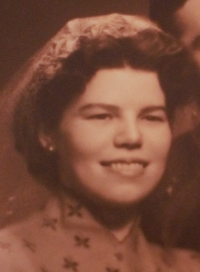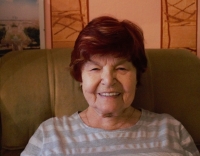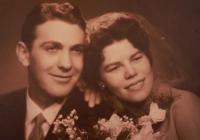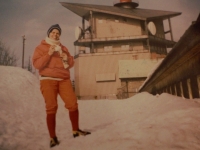I saw a dead lady being taken out of the ruins

Download image
Jaroslava Mertlová was born on July 15, 1935. She spent the war years in Prague, where she experienced a bombing in February 1945, during which she was wounded. In May 1945, she welcomed the arrival of the Soviet army with other Praguers. After the communist coup, she did not get into high school because her father ran a business until 1948. She did not complete her studies by distance until several years later. Although she was never a member of the party, in the 1970s she worked as a secretary in the Regional Sports Administration and accompanied important personalities on their visits to Czechoslovakia.



